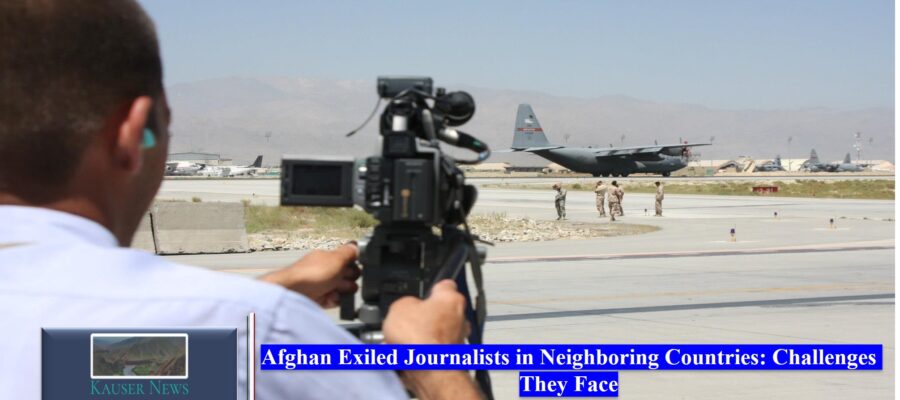These journalists, who were the voices of their people, are now facing dangerous mental and economic hardships. After the fall of the Republic system, a large number of Afghan people fled to various countries, especially neighboring ones like Pakistan and Iran, due to fear of retaliation by the Taliban. Among these refugees are journalists who, in the aftermath of the Republic’s collapse, were forced to abandon their homes, jobs, and livelihoods and seek refuge in Pakistan.
The relentless oppression by the Taliban has compelled media professionals, particularly journalists, to migrate, leading them to a life of uncertainty and hardship, further exacerbating their plight every day.
Throughout the past two years of Taliban rule in Afghanistan, you may have witnessed through national and international media the killing of dozens of journalists, and the imprisonment and torture of hundreds of others, and unfortunately, these crimes continue to occur. Our words about journalists being imprisoned and associated media professionals being targeted by the Taliban without any reason remain true.
Afghan exiled journalists living in Pakistan, Iran, Turkey, Tajikistan, and India, who have previously worked in the fields of human rights, freedom of expression, and reporting on the atrocities and inhumane acts of the Taliban and ISIS in various provinces, are now facing great risks.
In their recent declaration, the Taliban has warned that they will target their former opponents who are now outside Afghanistan’s borders, and they will eliminate them. Considering this situation, no journalist outside the country is safe.
The Afghan exiled journalists in Pakistan and other countries are enduring endless waiting for their cases to be reviewed by embassies, aid agencies, and media support organizations. This prolonged uncertainty about their status has put a significant mental strain on them, as they struggle to meet their basic needs, are separated from their jobs, and have their children away from schools, lacking access to essential livelihood necessities.
The number of Afghan journalists forced to live in Pakistan reaches about 300, Journalist and Media Workers, due to the non-renewal of visas by the Pakistani government, they face difficulties in paying rent, daily expenses, and accessing free healthcare and education. When their visas expire, they are first pressured by their landlords to renew their visas, and then the police come after them, arresting and demanding exorbitant amounts of money for their release. For instance, several journalists, like Mr. Haqmal and Mr. Taher saidd, were detained by the police in Islamabad Pakistan, and they extorted large sums of money for their release. “Pakistan Press Club Member said we released him and the money issue is wrong”
The complex social problems have also mentally burdened some of the journalists, leading to fear of negative actions such as addiction, suicide, or selling their body parts. For example, one journalist last year announced on his Facebook page that due to economic struggles, he would sell his kidney.
As mentioned before, Afghan journalists residing in Pakistan and other countries have no way to return to Afghanistan. If they do, they will undoubtedly face interrogation by the Taliban, and if identified, they may encounter gruesome deaths or worse torture.
The UNHCR appears indifferent to the cases of these journalists who have registered with them, and they offer no cooperation. Despite numerous protest letters sent to this office and the holding of rights-based meetings throughout the year, the officials’ lack of attention has been astonishing.
In these circumstances, the request from the journalists is for support from countries that champion freedom of expression and human rights. With many journalists in limbo for months, and some cases stuck in bureaucratic processes in various organizations and embassies, they desperately need assistance to overcome their current difficulties.
If the international community, which has invested in freedom of expression and democracy for the past twenty years, listens to the cry of this community and responds positively, it may be able to rescue these journalists from their precarious situation.
Should the situation persist, with journalists resorting to extensive protests and the use of Twitter and Facebook hashtags, this movement will continue until their goal is achieved.
To address their current challenges, the Afghan exiled journalists will continue sending protest letters, signed by all Afghan journalists in exile, to media support organizations and countries supporting freedom of expression.





